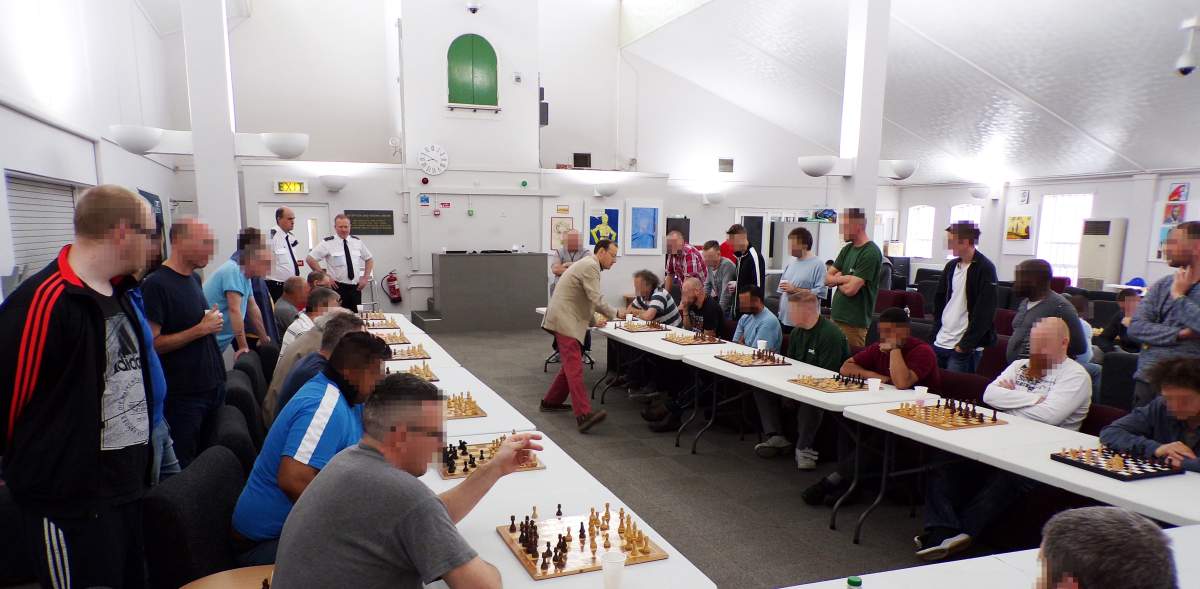While chess may seem like just a board game to some, it is now being used in prison systems in Canada and across the world to help rehabilitate prisoners.

For the last ten years, Carl Portman has led a prison chess program in the U.K. that he says has worked wonders on the disposition of convicted felons.
“It’s actually perfect for prison,” he told Global News. “Chess is about making good choices.”
Portman said that he has received testimonials from countless prisoners over the years who attest to how the game has helped them.
One said that instead of committing a crime after being released, he is now going to the chess club. Another said that he now thinks before acting, which prevented him from getting back into the drug trade, while a third said the game helped him reconnect with his son after being released because he knew he played as well.
Portman said that chess teaches you to think before acting and to take responsibility for your actions because once you make a move you can’t take it back. You have to live with the consequences.
“(There’s) a lot of shouting and swearing and cursing,” he said.

Chess has now made its way to the Canadian prison system, and research has begun to explore how the game might change a prisoner’s brain for the better.
In Ontario, a program has been approved by the Ministry of Community Safety and Correctional Services, after which the participant receives a certificate they can show to a judge, attesting to the life skills they gained.

Get daily National news
Kaileb Olsen and Jade Oldfield are two members of a University of Lethbridge team working to bring chess to prisons in Canada, and they both testify to its helpful qualities for prisoners.
The program had its first trial run at a correctional facility in Alberta in November 2022 that lasted eight weeks and had about 12 participants.
“It was hugely successful,” Olsen said.
The program consisted of weekly instructional sessions and two to three hours of playing the game among prisoners and volunteers.

Olsen said at first it was very intimidating given the size of some of the inmates, but there was no animosity and the guards would later say how they hadn’t seen some of the participants so calm or happy before.
Olsen recalls some surprising results, including one of the most aggressive offenders in the prison’s unit being the most gentle during the program, which surprised the officers — though he didn’t win a single game.
Oldfield explained that the brain doesn’t stop developing up to the age of 25, and her team is involved in running psychometric tests to see if there are any improvements in executive functions as a result of the mind-bending game.
The team, led by Dr. Lance Grigg, is now looking to repeat the program at the beginning of March and run it for 12 weeks, then hopefully repeat it three times a year.
- There are changes coming to Tim Hortons menus and stores soon
- YouTube, Roblox say they deleted accounts tied to Tumbler Ridge shooter
- ‘We now have to figure out how to live life without her’: Mother of Tumbler Ridge shooting victim speaks
- Supreme Court annuls 2025 one-vote Liberal win in Montreal riding
Such a program falls into the philosophy of “restorative justice,” meaning work is done to help prisoners rather than punish them, otherwise known as punitive justice.
Olsen explained that such a philosophy is not new and is strongly supported by evidence that shows it is the best form of intervention if there’s hope for rehabilitating offenders and reintroducing them to communities.
Portman also defended the idea of prisoners playing games while on the inside, noting that holding prisoners costs taxpayers a lot so there is a reason to help with rehabilitation.
It seems prisons across the world are taking notice of the possibilities chess presents, with programs present in Brazil, Argentina, Malaysia, India, and the U.S., according to Portman.
In October, the third annual Intercontinental Online Chess Championship for Prisoners took place with 118 teams from 50 different countries.
“It’s global,” Portman said. “Let’s give people an opportunity that want to try and be better in life.”









Comments
Want to discuss? Please read our Commenting Policy first.